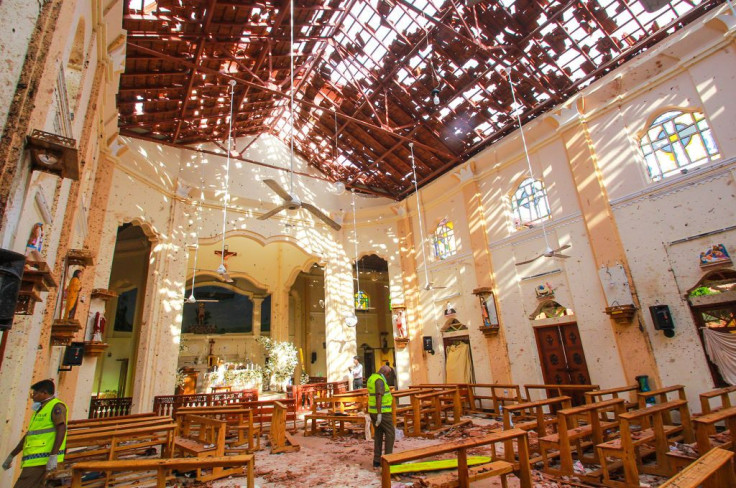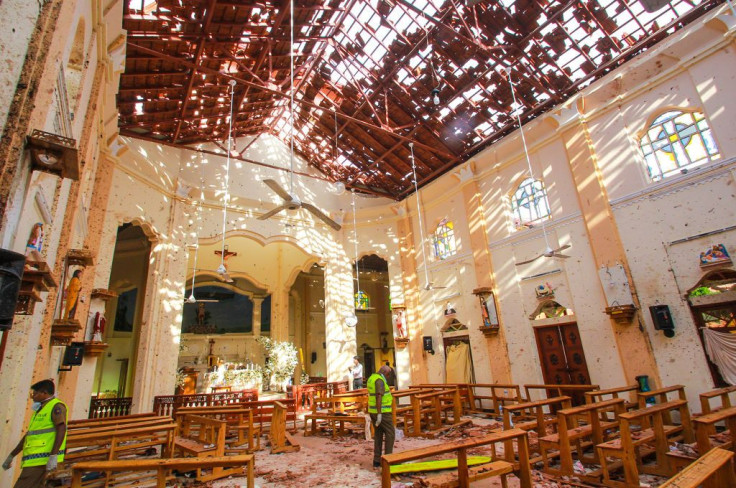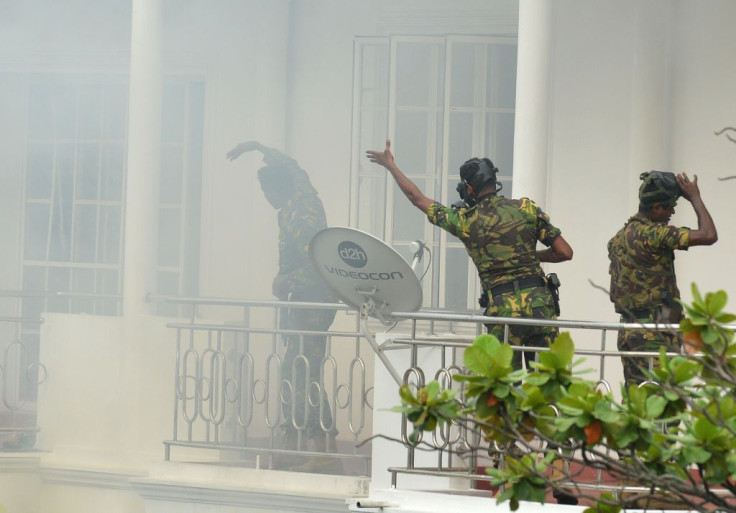Sri Lanka Bombing: 'Religious Extremist' Group Suspected Behind Terror Attacks That Killed 207

An as yet unnamed "religious extremist" terrorist group is suspected to be responsible for eight horrific and coordinated Easter Sunday bombings across Sri Lanka and the capital Colombo, which killed 207 persons (including 27 foreigners) and wounded 450 others at last count.
Most of the dead and injured are native Sinhalese. There still has been no claim of responsibility but some analysts say the remnants of ISIS cannot be discounted.
The launch of the attacks on Easter Sunday, one of the holiest days for Christians, and the targeting of three Christian churches all point to a religious motive behind the attack. Sri Lankan Defense Minister Ruwan Wijewardene told reporters the "terrorist incident" was carried out by a group supporting "religious extremism."
A 12-hour nationwide curfew will be imposed Monday while internet access to social media has been cut-off. Seven suspects have been arrested, some of them Muslims.
A top police official is said to have warned security officials in an advisory 10 days before the attacks about a threat to prominent churches from a radical Islamist group, National Thowheeth Jama’ath, said The New York Times.
Suicide bombers were responsible for the attacks on three Christian churches packed with Easter Sunday worshippers across the country and four international hotels in Colombo, said police. Explosions at a housing complex and a guest house killed three police officers raiding suspected locations.
Suicide bombers detonated their explosives during Easter services in Negombo, Batticaloa and Colombo. In Colombo, they struck the Shangri-La, Cinnamon Grand, Kingsbury and New Tropical Inn hotels.
Sri Lanka police said the bomber at the Cinnamon Grand Hotel was a guest registered under the name "Mohamed Azzam Mohamed." Media reports said this man, a Sri Lankan Muslim, detonated the explosives he carried on his back at 8:30 a.m. while queueing for Easter Sunday breakfast at the Cinnamon Grand hotel.

The first blast hit the St. Anthony's Shrine, a historic church in Colombo, where more than 50 people were killed. The second blast devastated the St. Sebastian's Church in the Christian-majority suburb of Negombo north of Colombo where 93 persons were killed.
The explosion at the Zion Church in Batticaloa, a Protestant congregation, killed at least 27 persons. A hospital official in Batticaloa said that more than 300 people were admitted after the explosion.
"These are certainly acts of terror," said Manisha Gunasekera, the High Commissioner of Sri Lanka to the U.K. "This is an attack against the whole of Sri Lanka because Sri Lanka is very multi-ethnic, multi-religious and multi-cultural country and the whole country comes together in celebration of Easter Sunday."
Sri Lanka Minister of Defense requested Sri Lankan media not publish the names of the attackers and said the government believes the attacks were carried out by a single group.
The country is overwhelmingly Buddhist and is still recovering from the effects of the Sri Lanka Civil War from 1993 to 2009 as they fought against the independence seeking Liberation Tigers of Tamil Eelam (LTTE).
Eight in 10 Sri Lankan Christians are Roman Catholics, which comprise over seven percent of the total population (21 million).
Political analysts noted the attacks specifically targeted Christian churches and foreigners. During the civil war, the LTTE rarely attacked Christians and foreigners.

© Copyright IBTimes 2024. All rights reserved.





















